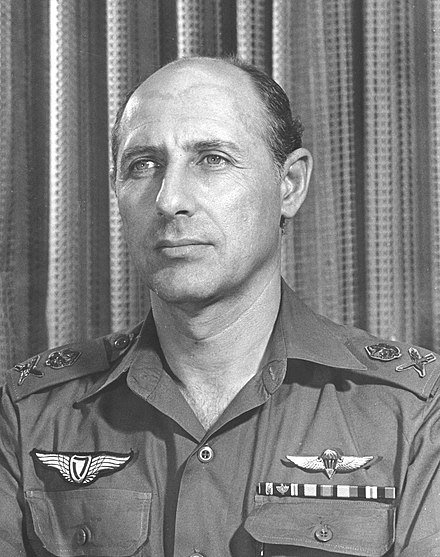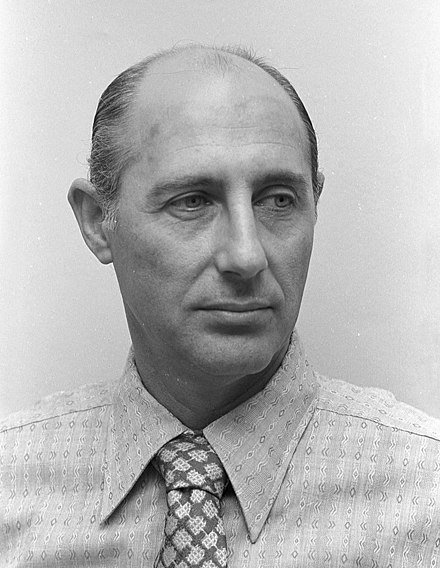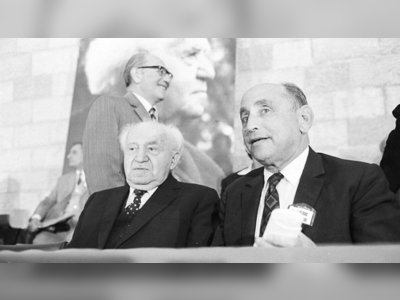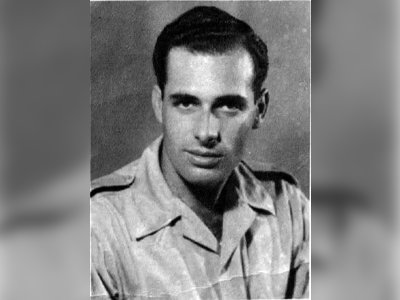מורשת גדולי האומה
בזכותם קיים
beta
Eli Zeira
Eliyahu (Eli) Zeira, born on April 4, 1928, is a prominent figure in Israeli security and a retired IDF (Israel Defense Forces) general. He served as the head of Aman (IDF's Military Intelligence Directorate) during the Yom Kippur War, and he is the individual most heavily criticized by the Agranat Commission for his role in the surprise attack that initiated the conflict. Due to his involvement in the mishandling of the Yom Kippur War, the commission recommended his removal from the position of head of Aman.
Early Life and Military Career
Eli Zeira was born in Haifa in 1928 to a father who was an electrical engineer and a homemaker mother. He completed his elementary and high school education at the Haifa Real School. In 1946, he joined the Palmach, the elite strike force of the Haganah (pre-state Jewish military organization). He served as a platoon leader and later as a company commander in the 1st Battalion of the Yiftach Brigade during the War of Independence. After the war, he became the first officer in the IDF and was sent to the United States for advanced training at the School for Battalion Commanders. Upon returning to Israel, he earned a bachelor's degree in economics and statistics from the Hebrew University.
From 1954 to 1955, Zeira served as the chief of staff's bureau head under Moshe Dayan. Following that, he became a company commander in the Givati Brigade. During Operation Kadesh, he served as the head of the Operations Branch in the IDF General Staff. Subsequently, he attended the Command and Staff College at Fort Leavenworth in the United States. In 1960, he was appointed as the commander of the Paratroopers Brigade, and two and a half years later, he became the head of the Operations Department at the IDF General Staff.
In 1963, Zeira transferred to the Intelligence Corps and headed the Collection Branch. In January 1970, he was assigned as the Israeli Defense Attaché in the United States and Canada, receiving the rank of major general. In September 1972, he returned to Israel and was appointed as the head of Aman.
His Role in the Erroneous Intelligence Assessment
On October 1, 1973, the Egyptian and Syrian armies went on high alert, signaling potential military action. Due to a flawed intelligence assessment, which was based on the "concept" formulated by the IDF that Egypt would not attack as long as Israel maintained air superiority and a flawed judgment by Israel's high command, minimal preparations were made in the IDF. A report issued by Aman on the morning of October 5 stated that the Egyptian and Syrian armies were in a state of war readiness, but the assessment still claimed that the probability of war was low. During a meeting of the IDF General Staff on the same day, Zeira famously asserted that the probability of war was "low, even lower than low."
In the early morning hours of October 6 (Yom Kippur), after receiving a war alert issued by the head of Mossad, Zvi Zamir, based on his meeting with Egyptian President Anwar Sadat a few hours earlier, IDF Chief of Staff David Elazar finally accepted that war was imminent. However, Zeira and Defense Minister Moshe Dayan remained convinced that war was unlikely.
Zeira was widely held responsible for the unpreparedness of the IDF at the onset of the Yom Kippur War. Both errors in judgment and misinformation were factors that contributed to this lack of preparedness. Consequently, the Agranat Commission recommended Zeira's removal from the position of head of Aman. The commission's findings left a lasting impact on Israel's collective memory, characterizing the war primarily as a result of intelligence failure, with Aman's "concept" at its core. Although the Agranat Commission did not recommend Zeira's dismissal from the IDF, he chose to pursue further studies at Stanford University and subsequently ended his military service.
Zeira's Account of Pre-Yom Kippur War Events
In 1993, Zeira published a book titled "Yom Kippur War - Myth vs. Reality" (Yediot Aharonot Publications), which presented his version of events leading up to the Yom Kippur War. This edition, approved by military censorship, identified the "senior Egyptian source" who had warned of the impending war but did not reveal his name. A second edition of the book was published in 2004, titled "Myth vs. Reality - The Yom Kippur War: Failures and Lessons." In this edition, Zeira made notable efforts to clear his name and shifted blame onto others for the intelligence mishandling. Among his claims was that the senior Egyptian source activated by "the Mossad" was a double agent (opinions vary on the credibility of this claim) working for Egypt and that he misled Israel. Zeira also criticized the conduct of the Agranat Commission and accused Golda Meir, the Prime Minister at the time, of withholding information from the commission. He claimed that she had met privately with King Hussein of Jordan ten days before Yom Kippur, during which Hussein had requested to convey a warning about the impending war. According to Zeira, Golda Meir concealed this meeting from the Agranat Commission, which had been committed to maintaining secrecy.
Zeira's Defense and the Issue of the Leak of Syrian and Egyptian War Plans
Zeira defended himself by arguing that he did not reveal Marwan's identity before 2004. Marwan's name had already been exposed in the Egyptian press in 2002, and this information was cited in international and Israeli media. Zeira relied on these public reports when he disclosed Marwan's name in 2004 in the second edition of his book.
In July 2012, the Israeli government's legal advisor, Yehuda Weinstein, decided to close the case. One of his reasons was Zeira's age, as he was 84 years old at the time and had been an active participant in Israel's struggle for statehood and security.
Eli Zeira's role in the events leading up to the Yom Kippur War remains a subject of debate and controversy, with differing opinions on his culpability and the impact of his actions on the outcome of the war.
Eli Zeira was born in Haifa in 1928 to a father who was an electrical engineer and a homemaker mother. He completed his elementary and high school education at the Haifa Real School. In 1946, he joined the Palmach, the elite strike force of the Haganah (pre-state Jewish military organization). He served as a platoon leader and later as a company commander in the 1st Battalion of the Yiftach Brigade during the War of Independence. After the war, he became the first officer in the IDF and was sent to the United States for advanced training at the School for Battalion Commanders. Upon returning to Israel, he earned a bachelor's degree in economics and statistics from the Hebrew University.
From 1954 to 1955, Zeira served as the chief of staff's bureau head under Moshe Dayan. Following that, he became a company commander in the Givati Brigade. During Operation Kadesh, he served as the head of the Operations Branch in the IDF General Staff. Subsequently, he attended the Command and Staff College at Fort Leavenworth in the United States. In 1960, he was appointed as the commander of the Paratroopers Brigade, and two and a half years later, he became the head of the Operations Department at the IDF General Staff.
In 1963, Zeira transferred to the Intelligence Corps and headed the Collection Branch. In January 1970, he was assigned as the Israeli Defense Attaché in the United States and Canada, receiving the rank of major general. In September 1972, he returned to Israel and was appointed as the head of Aman.
His Role in the Erroneous Intelligence Assessment
On October 1, 1973, the Egyptian and Syrian armies went on high alert, signaling potential military action. Due to a flawed intelligence assessment, which was based on the "concept" formulated by the IDF that Egypt would not attack as long as Israel maintained air superiority and a flawed judgment by Israel's high command, minimal preparations were made in the IDF. A report issued by Aman on the morning of October 5 stated that the Egyptian and Syrian armies were in a state of war readiness, but the assessment still claimed that the probability of war was low. During a meeting of the IDF General Staff on the same day, Zeira famously asserted that the probability of war was "low, even lower than low."
In the early morning hours of October 6 (Yom Kippur), after receiving a war alert issued by the head of Mossad, Zvi Zamir, based on his meeting with Egyptian President Anwar Sadat a few hours earlier, IDF Chief of Staff David Elazar finally accepted that war was imminent. However, Zeira and Defense Minister Moshe Dayan remained convinced that war was unlikely.
Zeira was widely held responsible for the unpreparedness of the IDF at the onset of the Yom Kippur War. Both errors in judgment and misinformation were factors that contributed to this lack of preparedness. Consequently, the Agranat Commission recommended Zeira's removal from the position of head of Aman. The commission's findings left a lasting impact on Israel's collective memory, characterizing the war primarily as a result of intelligence failure, with Aman's "concept" at its core. Although the Agranat Commission did not recommend Zeira's dismissal from the IDF, he chose to pursue further studies at Stanford University and subsequently ended his military service.
Zeira's Account of Pre-Yom Kippur War Events
In 1993, Zeira published a book titled "Yom Kippur War - Myth vs. Reality" (Yediot Aharonot Publications), which presented his version of events leading up to the Yom Kippur War. This edition, approved by military censorship, identified the "senior Egyptian source" who had warned of the impending war but did not reveal his name. A second edition of the book was published in 2004, titled "Myth vs. Reality - The Yom Kippur War: Failures and Lessons." In this edition, Zeira made notable efforts to clear his name and shifted blame onto others for the intelligence mishandling. Among his claims was that the senior Egyptian source activated by "the Mossad" was a double agent (opinions vary on the credibility of this claim) working for Egypt and that he misled Israel. Zeira also criticized the conduct of the Agranat Commission and accused Golda Meir, the Prime Minister at the time, of withholding information from the commission. He claimed that she had met privately with King Hussein of Jordan ten days before Yom Kippur, during which Hussein had requested to convey a warning about the impending war. According to Zeira, Golda Meir concealed this meeting from the Agranat Commission, which had been committed to maintaining secrecy.
Zeira's Defense and the Issue of the Leak of Syrian and Egyptian War Plans
Zeira defended himself by arguing that he did not reveal Marwan's identity before 2004. Marwan's name had already been exposed in the Egyptian press in 2002, and this information was cited in international and Israeli media. Zeira relied on these public reports when he disclosed Marwan's name in 2004 in the second edition of his book.
In July 2012, the Israeli government's legal advisor, Yehuda Weinstein, decided to close the case. One of his reasons was Zeira's age, as he was 84 years old at the time and had been an active participant in Israel's struggle for statehood and security.
Eli Zeira's role in the events leading up to the Yom Kippur War remains a subject of debate and controversy, with differing opinions on his culpability and the impact of his actions on the outcome of the war.
- אלי זעירא – ויקיפדיהhe.wikipedia.org















